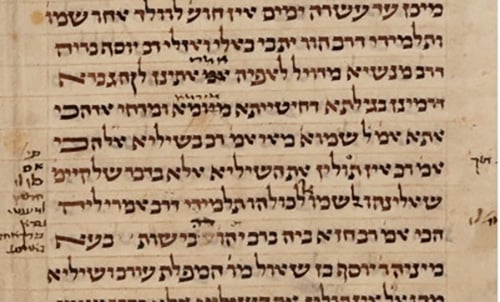How much in life do we take for granted? How often do we pause to say “thank you” or express our gratitude? Judaism, with its rich traditions and teachings from the Tanach, offers us profound insights into the importance of gratitude—both toward people and toward Hashem.
One beautiful minhag (custom) that highlights this theme is the practice of feeding birds on Shabbat Shira. This custom is rooted in a Midrash about the rebellious Dasan and Aviram, two troublemakers who sought to undermine Moshe Rabbeinu in the desert. When the miraculous manna fell each day, Moshe instructed Bnei Yisrael to collect a double portion on Friday, as no manna would descend on Shabbat. Dasan and Aviram, determined to discredit Moshe, secretly scattered extra manna on Shabbat morning, hoping to deceive the people into believing Moshe had misled them. But before anyone could discover the deception, birds came and ate the planted manna, ensuring Moshe’s integrity remained intact.To this day, as an expression of Hakarat HaTov (recognizing the good), Jews in many communities scatter food for birds on Shabbat Shira, remembering the kindness they performed centuries ago.
Rav Hershel Schachter, quoting the Magen Avraham (Orach Chaim 324:7), points out an intriguing halachic nuance: Ordinarily, one is not permitted to feed wild animals on Shabbat, as it constitutes unnecessary exertion (tircha). Yet, the mitzvah of Hakarat HaTov is so significant that it overrides this concern, allowing us to feed birds in recognition of their ancient deed. If we demonstrate gratitude even toward birds for an act performed thousands of years ago, how much more so must we express appreciation to the people in our lives—our spouses, parents, teachers, friends and mentors—who contribute so much to our well-being.
The theme of gratitude is powerfully illustrated in the story of King David and Mephiboshet. David and Jonathan, son of King Saul, shared a deep, unbreakable bond of friendship, swearing eternal loyalty to one another and their descendants. After Jonathan’s tragic death in battle, David sought out any surviving members of his family. He discovered that Jonathan had a son, Mephiboshet, who had been injured as a child while fleeing from danger and was now permanently lame (Shmuel Bet 4:4).
Despite Mephiboshet’s lowly status, David honored his covenant with Jonathan by restoring Mephiboshet’s family fortune and seating him at the royal table as one of his own (Shmuel Bet 9:3). This remarkable act of Hakarat HaTov teaches us that true gratitude is not just about words; it is about action, loyalty and repaying kindness whenever possible.
The Torah repeatedly emphasizes gratitude as a foundational Jewish value. In Parshat Va’era, Hashem commands Moshe to initiate the first three plagues—but not to strike the Nile or the dust of Egypt himself. Instead, Aharon performs these actions. Why? The Midrash explains that Moshe owed a debt of gratitude to the Nile, which had protected him as an infant in a basket, and to the dust, which had hidden the Egyptian he struck down. Even inanimate objects deserve appreciation when they have been the source of good (Shemot Rabbah 9:10). If the Torah teaches us to show gratitude to a river and the earth, how much more so should we show it to those who have positively impacted our lives!
Rav Avigdor Miller, zt”l, beautifully notes that while gratitude toward people is essential, our ultimate gratitude must be directed toward Hashem, the eternal source of all kindness. Human relationships are fleeting—people come and go, but Hashem remains constant. He is the One who provides our sustenance, health and opportunities in life. The Modeh Ani prayer, recited every morning upon waking, reflects this awareness: Before doing anything else, we acknowledge that our very breath is a gift from Hashem.
Gratitude should not be reserved only for grand gestures; it should permeate our daily lives. Whether it’s thanking a spouse for their support, appreciating an employer for providing a livelihood, or even recognizing a friend for a small act of kindness, every expression of thanks strengthens our character and deepens our relationships. And above all, we must never forget to thank Hashem—for our health, our families and the countless blessings we often overlook.
After all, gratitude is not only for the birds!
Rabbi Dr. Avi Kuperberg is a forensic, clinical psychologist and a member of the American Psychology-Law Society. He is the coordinator of Bikur Cholim/Chesed at Congregation Torah Ohr in Boca Raton, Florida. He can be reached at [email protected].









